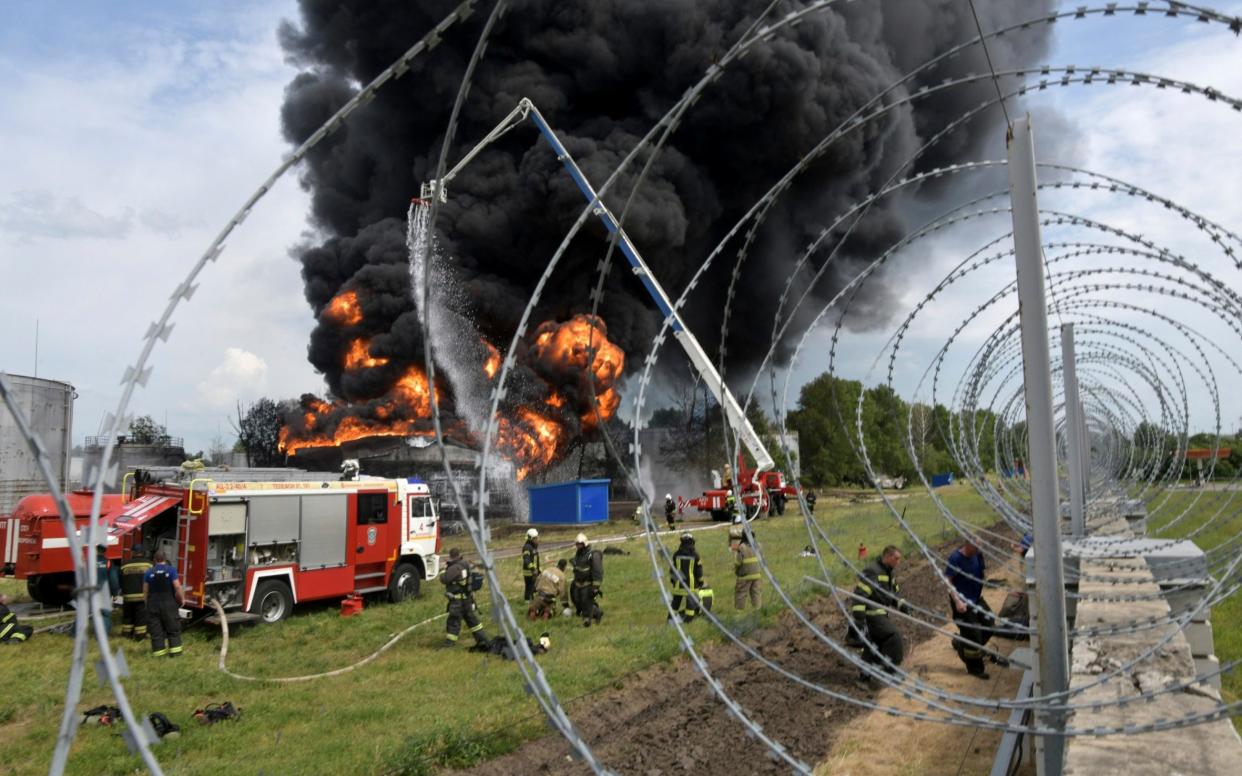The Kremlin must not be allowed to drag the entire world into nuclear Armageddon

- Oops!Something went wrong.Please try again later.
- Oops!Something went wrong.Please try again later.
As Yevgeny Prigozhin, “Putin’s chef”, attempted yesterday, at least for a few hours, to serve a cold dish to the tyrannical Russian leader, it was time to cross our fingers. The Kremlin, we must remember, controls the largest nuclear arsenal on the planet. The control of these strategic military assets will always be one of the most important issues for global security.
For we were dealing with military insurgents who are undoubtedly cruel and morally defunct.
Military strategists across the West would have been asking: what if a group of ex-convicts – including its leader Prigozhin, who served time in a penal colony – were able to get their hands on weapons of mass destruction? What were the possibilities that they could sell these assets to terrorist groups or hostile states, in their grubby chase for money? Could it happen again and, if so, how secure is the Russian nuclear arsenal? Are we sure that we understand the procedure for activating them?
For all the talk of Vladimir Putin launching a nuclear war in recent months, it now appears his grip on power may not be eternal and that this might now pose the biggest threat.
Moreover, Ukraine still faces the biggest nuclear threat.
It has been clear for some time that the Zaporizhzhia nuclear plant could be a target for Putin. It would have been a small jump for him to go from killing Ukrainians with missiles to killing them with the implosion of a massive nuclear power station. The United Nations should have been more active in preventing this, perhaps by stationing peacekeepers permanently – for we have had several warnings from Ukrainian authorities that Russian plans could reach this level.
Now, however, with the Russian president under extreme strain, he is surely more likely to follow through. Indeed it would prove a distraction from the embarrassment he’s now suffering.
Do we have a plan for the fallout from such a scenario?
With Wagner now emboldened, there is also the risk of poisonous weapons being leaked to various forces. They may be easier to transport, easier to activate and less jealously guarded.
Putin watched on in Syria as chemical weapons were deployed, continuing to support the Assad regime. Now the deployment of nerve agents in Ukraine could also prove an attractive distraction. Yesterday we came close to it ending up in the hands of Wagner, who have plied their trade in African nations, and whose men and leaders are clearly traumatised by what they have witnessed in Bakhmut. They may see no problem in using such assets as weapons of war.
Again, we must have a plan for blocking the movements of nerve agents. Their use would provide images we have never seen in Europe in our lifetimes.
Of course, these questions should not distract us from the fight at hand. The Ukrainian military must continue fighting; they must win – and the current dysfunction in Russia is likely to help in that cause. Russia’s military strategy remains in turmoil, leaving a gap that Kyiv would do well to exploit.
As I have argued in these pages before, Ukraine has taught us all – every Western army – a lesson in how to resist and fight back against the abhorrent fighting style of the Russians, who disregard any sense of humanity or fair play. The film The Eastern Front shows just how harrowing the invasion has been, including the abduction of children.
But clearly, this weekend’s events present big problems for Nato and Western governments.
We are dealing today not with a crisis in a rag-tag government, but we can foresee the potential dissolution of a nuclear-armed state with access to deadly poisonous weapons, such as that used to attack dissidents on British soil. While some will be overcome with schadenfreude at Putin’s growing problems – and while we must continue to support Ukraine – there are dangers lurking just under the surface that we must confront too.
The necessity now is to ensure that Russia’s crisis does not drag the rest of us into Armageddon.
Colonel Hamish de Bretton-Gordon is former Commanding Officer of the 1st Royal Tank Regiment

